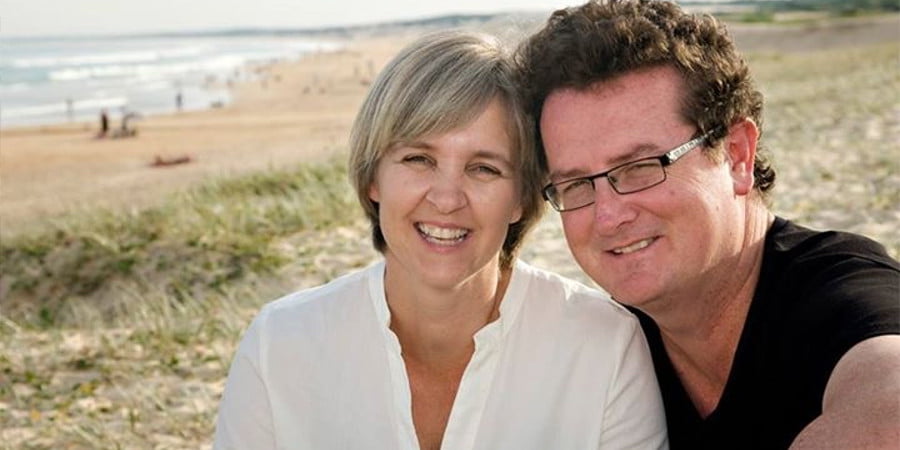Most days I can no longer do up the button on the left sleeve of my shirt. For that you need fine motor skills in your right hand, something Parkinson’s has taken from me. Buttoning a sleeve sounds such a small thing, but for me not being able to do it it was a milestone. Until now I have been able to find a work-around for the limitations Parkinson’s is creating. I have learned to type one-handed and write left-handed. But for doing up my left sleeve button there is no work-around.
The first time I asked Sandy to button the sleeve for me, I think we both recognised a threshold had been crossed. Commentary was unnecessary. Sandy gently took my arm, buttoned the sleeve, and somehow in that simple act communicated her determination to stand by my side each step of the journey ahead. I don’t think I have ever felt greater love.
I have just finished watching the latest episode of Q & A, which included futurologist Jason Silva on the panel. Silva was waxing lyrical on how the massive technological advances being made today are turning us into gods. He held the audience spellbound as he outlined the myriad of ways we are able to master the universe, exceed our limitations, and draw on new capabilities.
But I wonder if our god-likeness is found less in our ability to master the universe (something, despite Silva’s confidence, I doubt we’ll ever do) and more in our willingness to do up left-sleeve buttons for those who can’t. Somehow we have managed to build a narrative of mastery, achievement and control, when in reality we are each in our own ways fragile, vulnerable and dependent. And the glue that binds us, that is our strength, that is our true genius, is love.
It seems to me this is how God comes to us in the story of Jesus. Here is God incarnate as a baby, vulnerable, dependent on his parents to feed and toilet him; here is the adult Jesus, God incarnate, weeping at the graveside of his friend Lazarus; disappointed that his closest companions cannot persevere with him in prayer; bloodied and agonising on a Roman cross. Here is a vulnerable God. Perhaps vulnerability, dependence and weakness are god-like qualities?
And here in Jesus is a God who responds to the frailties of those he meets with servant love; who welcomes tax-collectors to his table; defends the adulterous woman from an angry mob; touches the leper; forgives the sinner. In doing the same, one vulnerable human being to another, are we not god-like?
And if it be true that we are created to image God, could it be that in the buttoning of my left sleeve, with my frailty exposed and Sandy’s love expressed, we are more fully and gloriously human?






What a deep, personal, profound reflection. Thank you Scott.
Thanks lindsay
Absolutely. More fully human, more vulnerable, more in need of each other and of love. I really appreciate this Scott, thanks for sharing.
Thanks emily
Beautifully written Scott. I couldn’t agree more.
Thanksvjohn
Sorry to hear that you have Parkinsons, Scott. Sounds like you have the love and support you need to help you live with love and dignity with this disease. I hope it’s gentle with you.
Thanks Justine. I am blessed to be surrounded by people who have shown me great love, friendship and support
thanks for sharing.
Thanks Amelia
Beautifully written Scott. What an amazing analogy of god-likeness. Very touched by your words.
Everyone should read this. Reminds me of the work of Henri Nouwen and Jean Vanier.
What a great revelation. God bless you.
Lovely entry Scott. Have not seen you since School days and sad to know you are not well. But so lovely to read your perspective. Blessing and grace for you and your family.